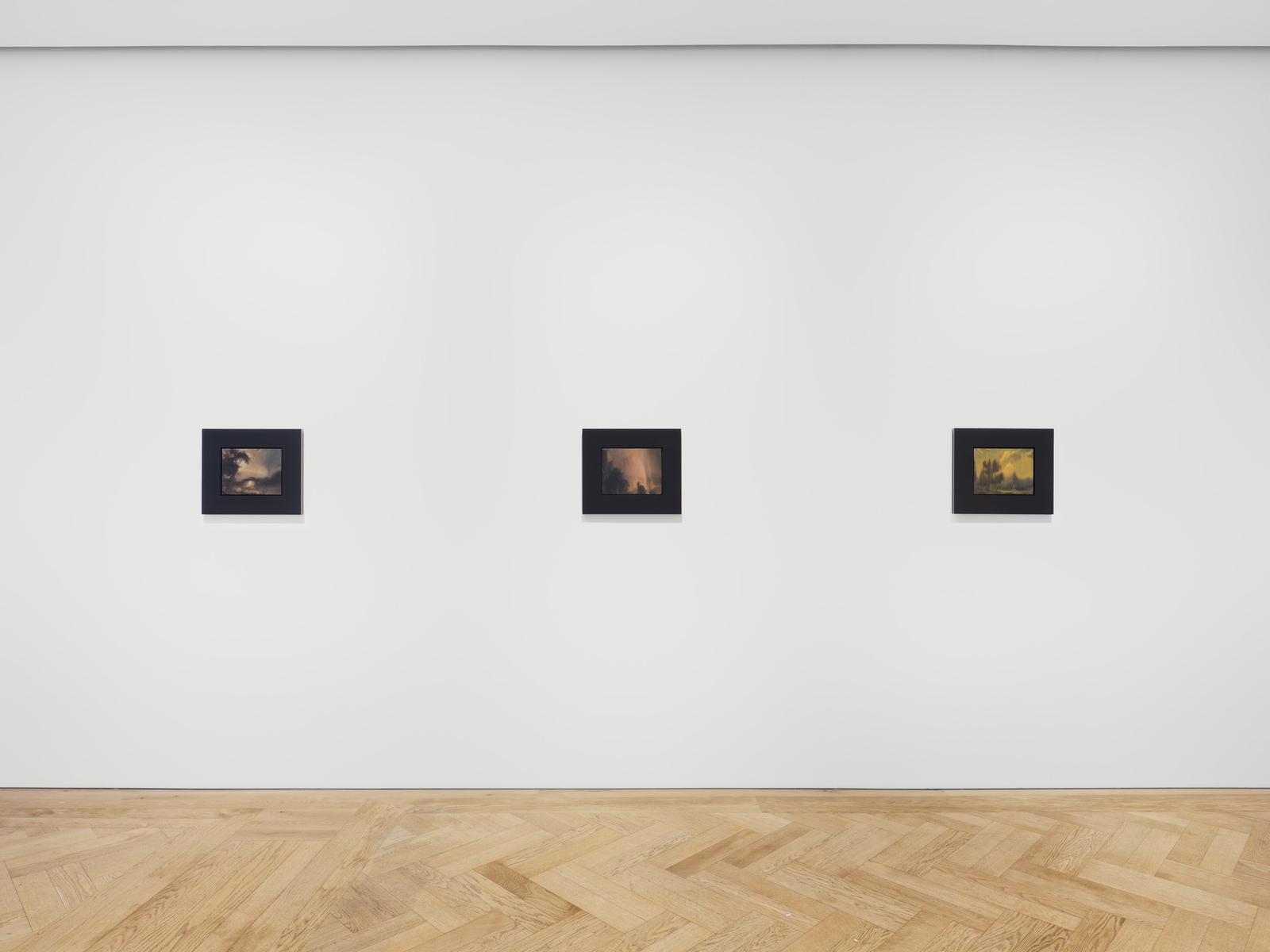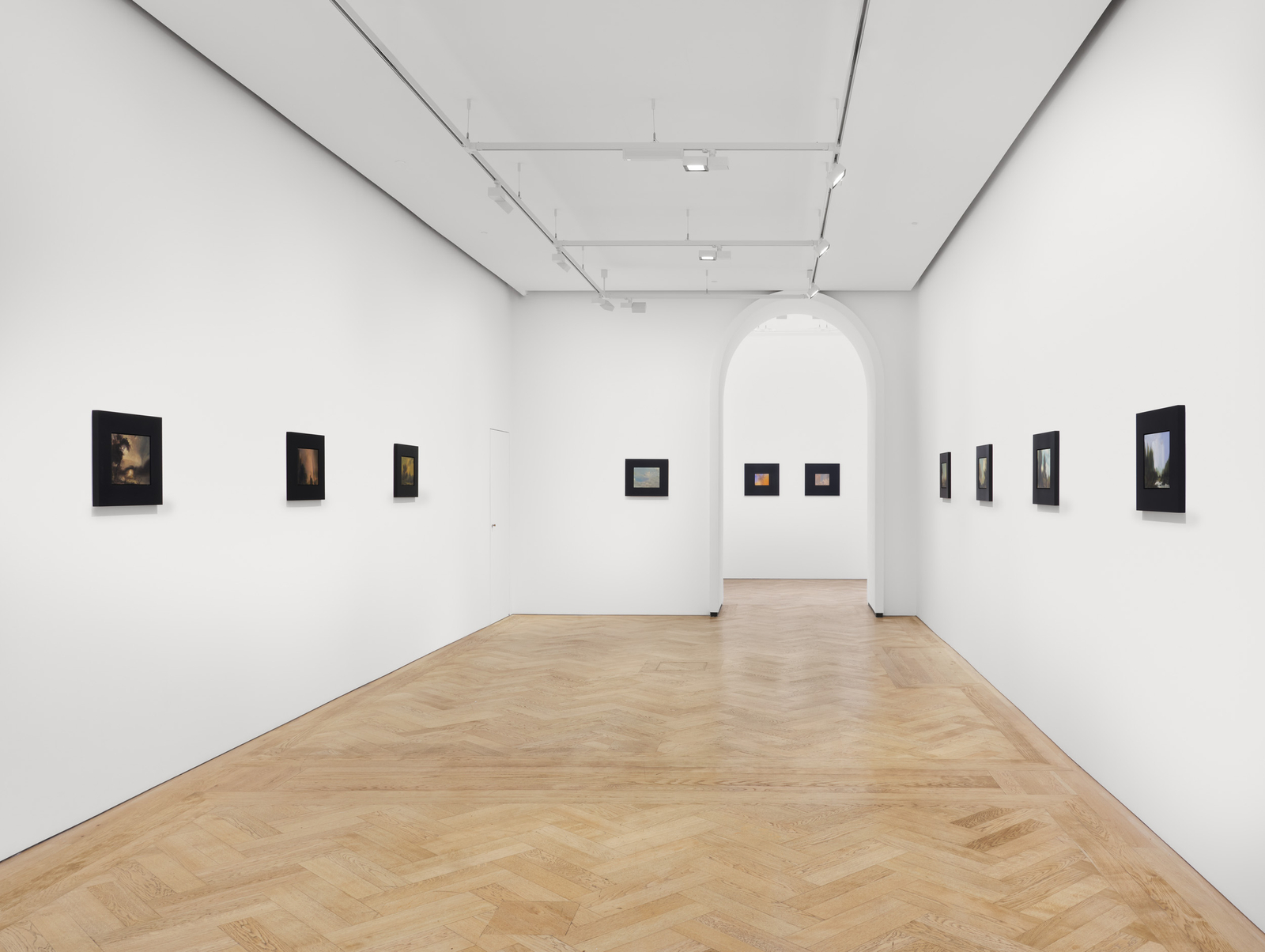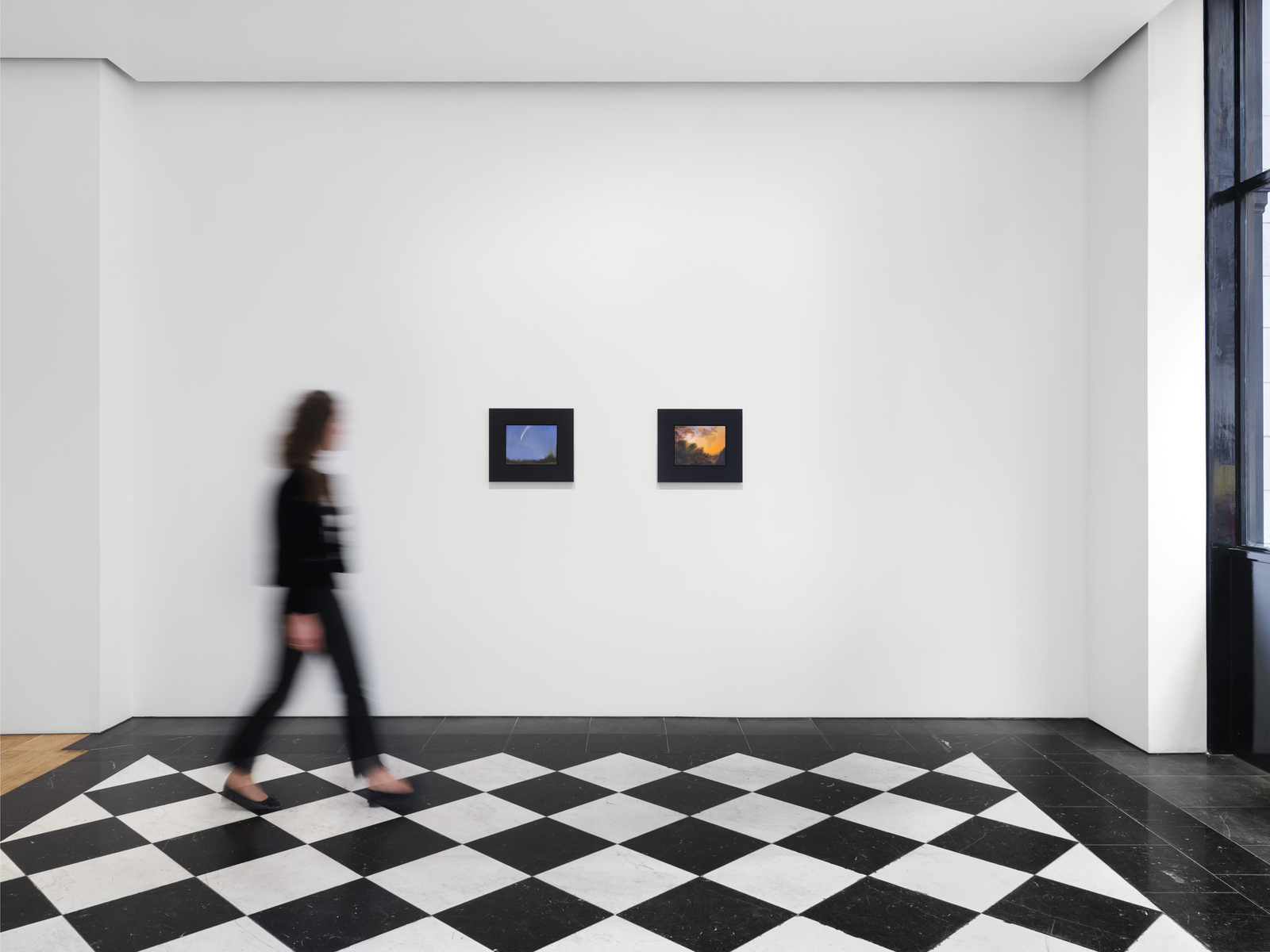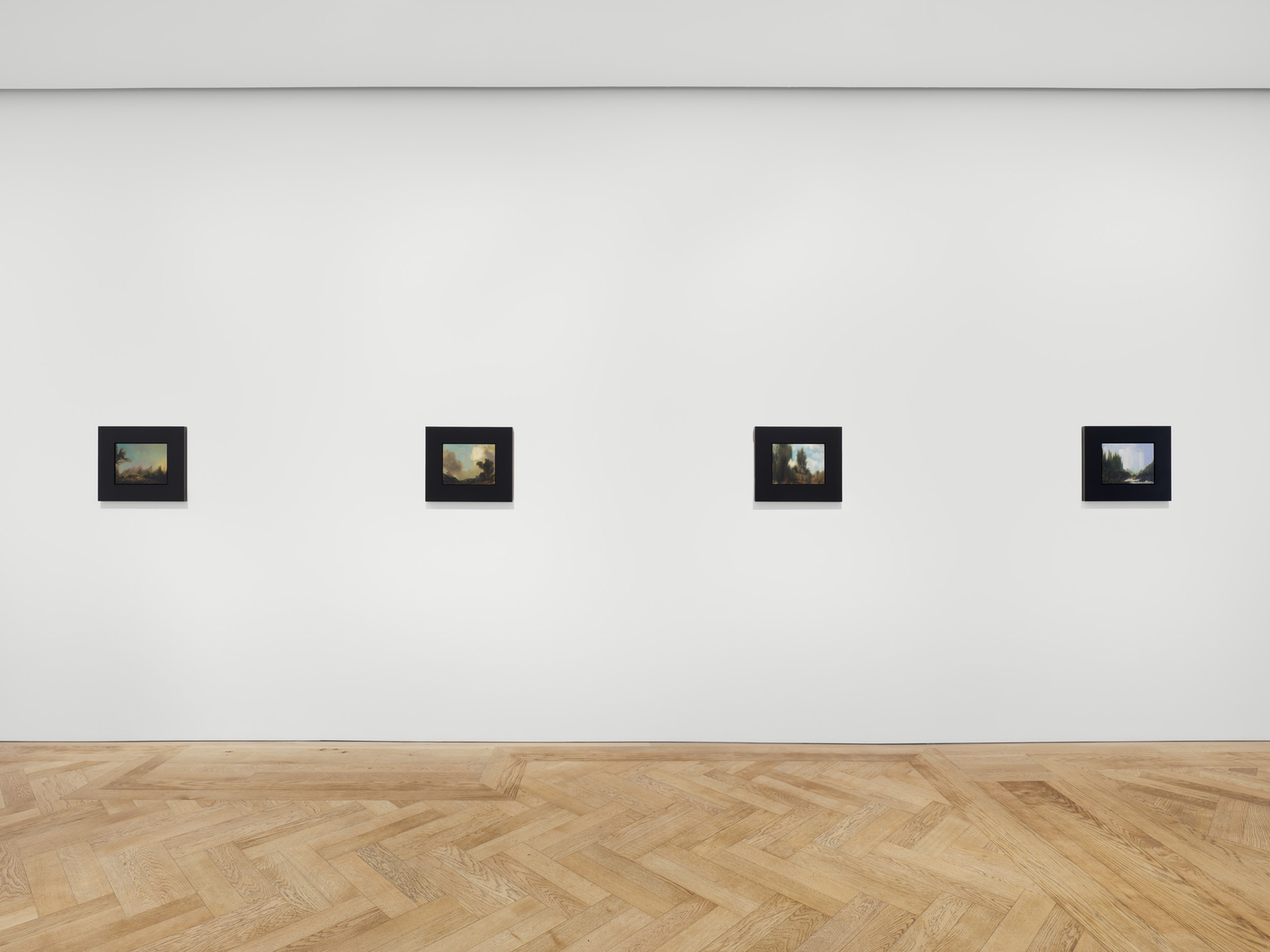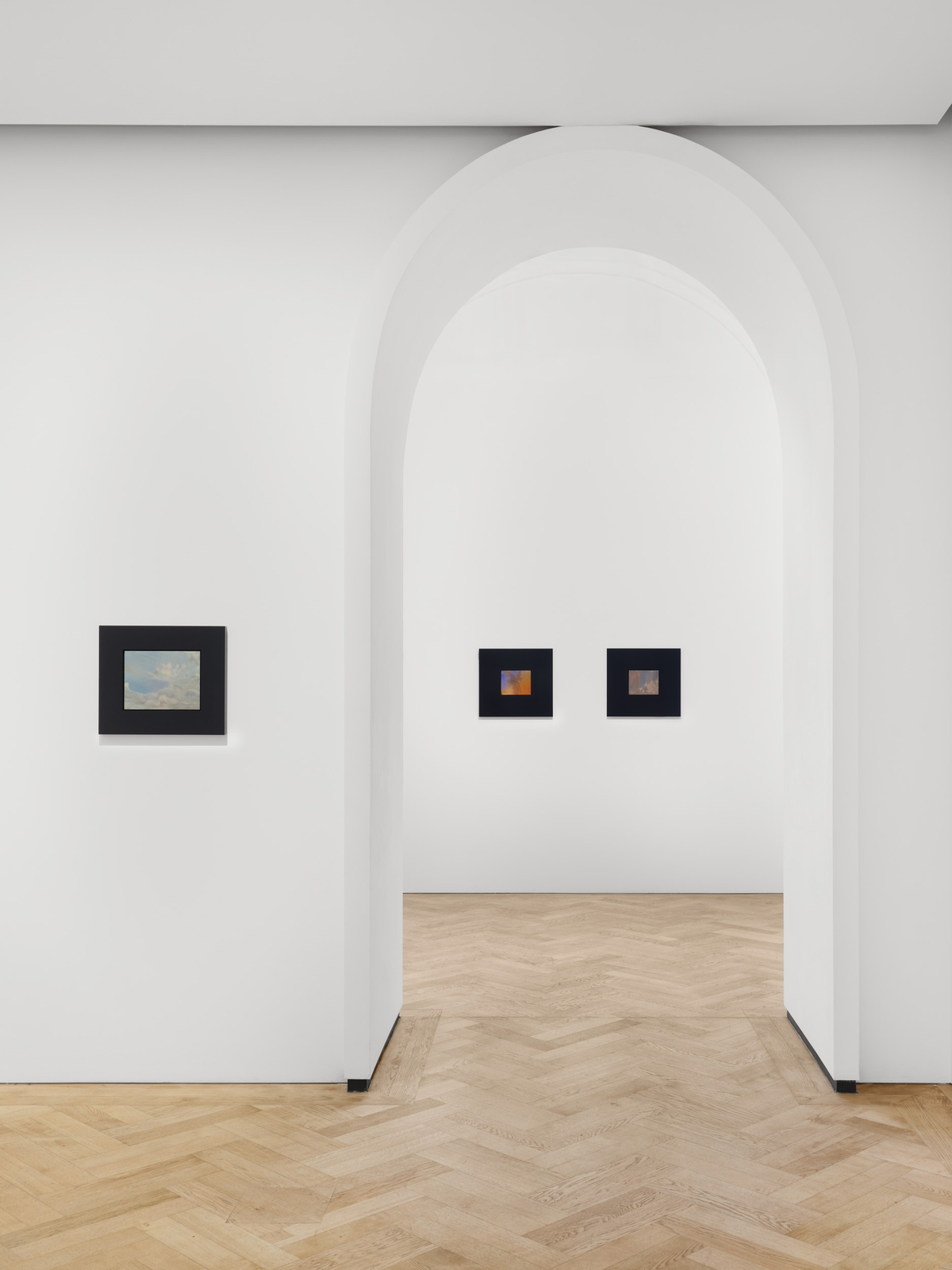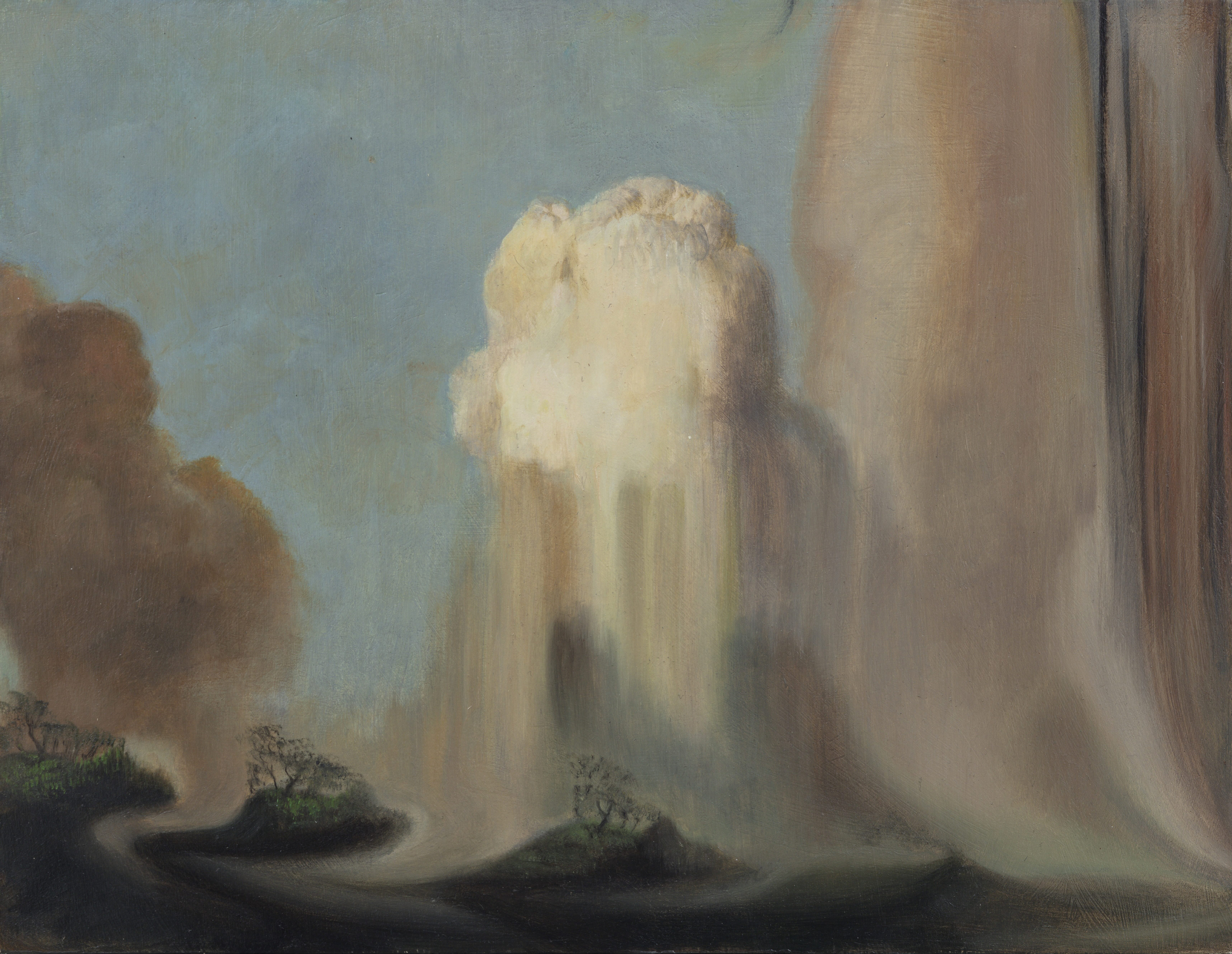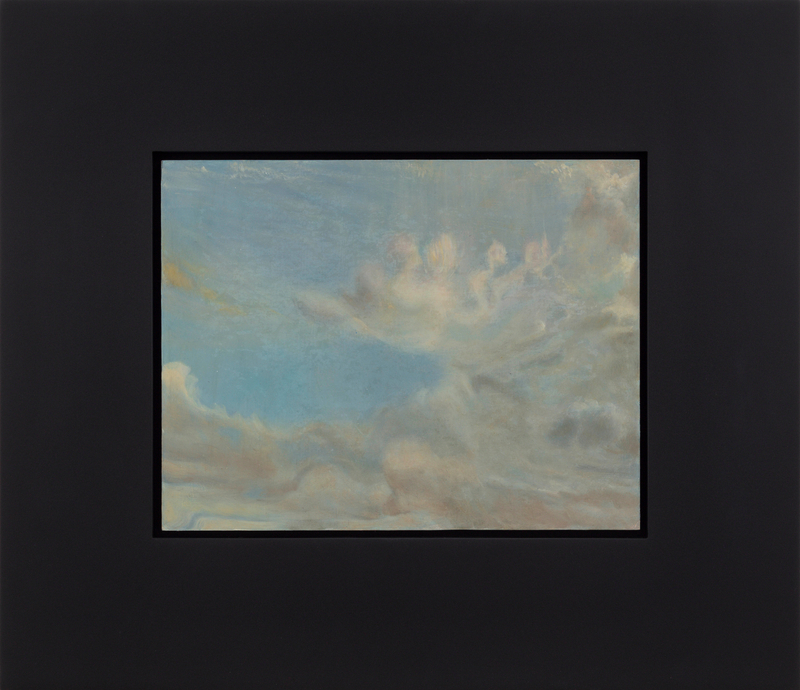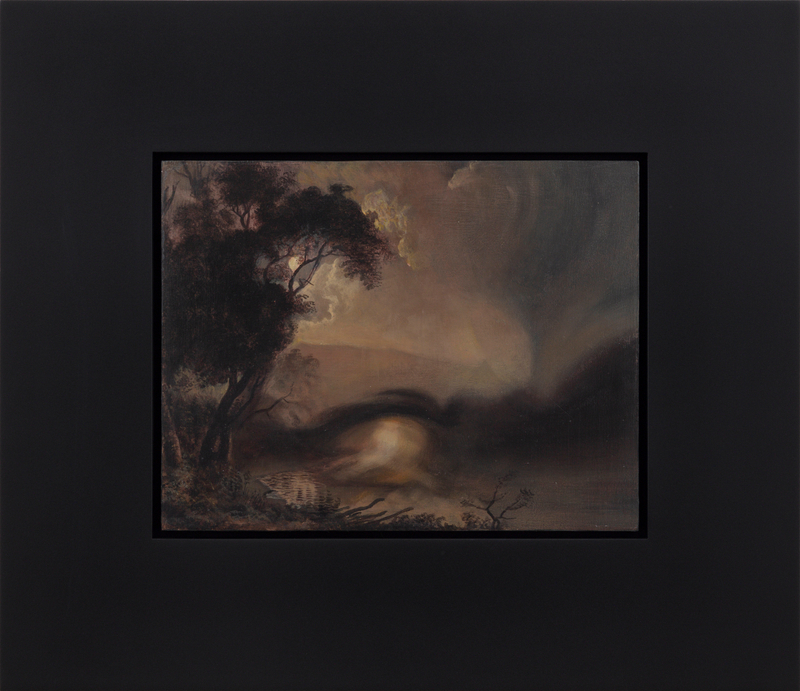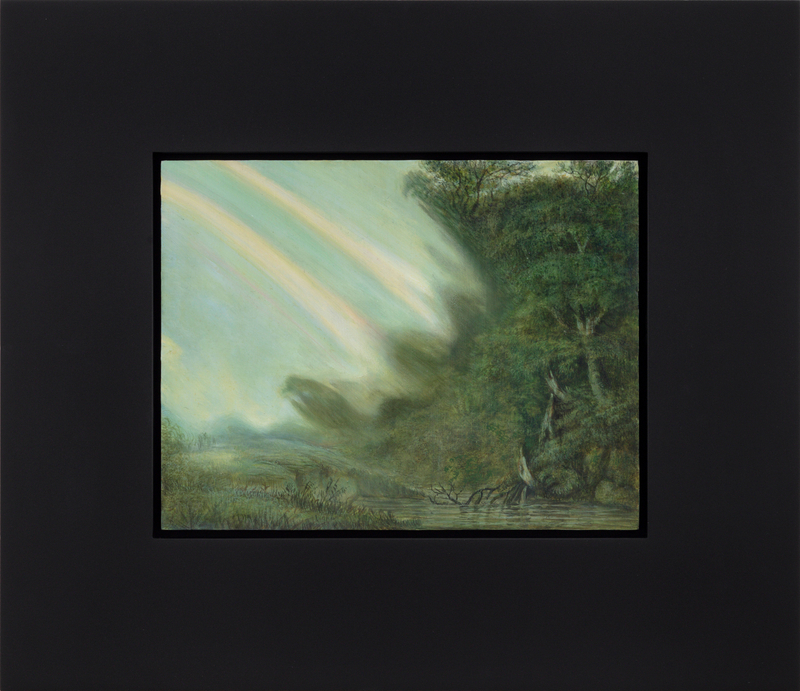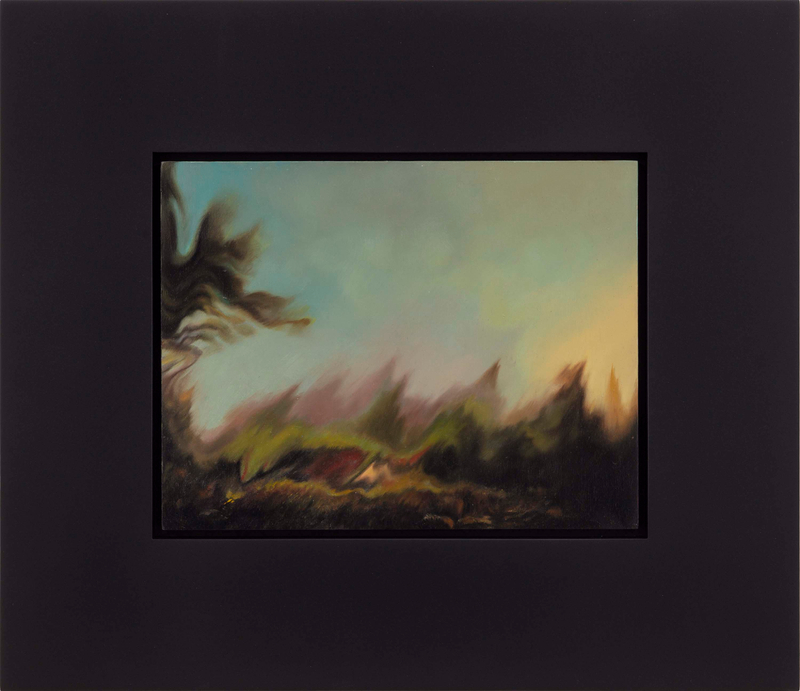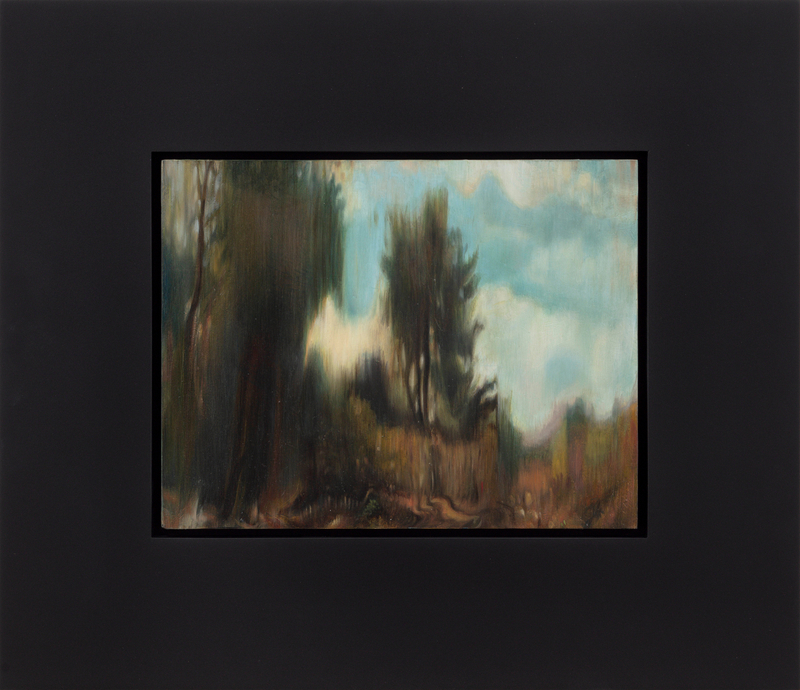Overview
Opening reception: Thursday 6 November 2025, 6-8pm
Pilar Corrias is pleased to present Slips, an exhibition of new paintings by Rachel Rose.
Rose’s work traces the ways landscapes shape human experience and how the stories and belief systems we weave are born from them. Across film, painting, drawing and sculpture, she draws on the cinematic to explore terrains both minute and immense—from a child’s toys scattered across a bedroom floor to the vastness of outer space—each scale opening onto the same core enquiry: how landscapes inscribe themselves into human life and the narratives we build around them.
In recent years, she has turned to early modern British landscape painting as both resource and reference, creating new works that evoke the uncanny, surreal forces unleashed as land was burned, cut and reshaped in the early industrial era. These paintings reflect on how that historical rupture continues to reverberate in our perception of nature today.
With Slips, Rose extends this line of questioning into a new body of paintings that fuses landscape with psychoanalytic theory, a conjunction that opens new ways of considering how images both conceal and reveal underlying reality.
Opening reception: Thursday 6 November 2025, 6-8pm
Pilar Corrias is pleased to present Slips, an exhibition of new paintings by Rachel Rose.
Rose’s work traces the ways landscapes shape human experience and how the stories and belief systems we weave are born from them. Across film, painting, drawing and sculpture, she draws on the cinematic to explore terrains both minute and immense—from a child’s toys scattered across a bedroom floor to the vastness of outer space—each scale opening onto the same core enquiry: how landscapes inscribe themselves into human life and the narratives we build around them.
In recent years, she has turned to early modern British landscape painting as both resource and reference, creating new works that evoke the uncanny, surreal forces unleashed as land was burned, cut and reshaped in the early industrial era. These paintings reflect on how that historical rupture continues to reverberate in our perception of nature today.
With Slips, Rose extends this line of questioning into a new body of paintings that fuses landscape with psychoanalytic theory, a conjunction that opens new ways of considering how images both conceal and reveal underlying reality.
Reflecting on the ideas that shape the exhibition, Rose writes:
A screen memory is a term from early Freudian psychoanalytic theory. It describes a memory we return to again and again in our lives—like recalling the exact way one flower looked in a garden you once visited, or how the desk felt beneath your hand on your first day of school. Freud believed such innocuous images might serve to repress deeper, more significant memories.
When I first began working with early 19th-century British landscape paintings over five years ago, I was struck by how they functioned in their own time. They offered romantic portraits of idyllic scenery at the very moment industrialisation was violently erasing those views. The paintings concealed what was in fact a far more destabilising reality.
A slip is another psychoanalytic term, but it works almost in reverse. Rather than hide what’s there, a slip exposes it. They betray our illusion of control. When I began noticing my own slips—saying the wrong name, forgetting my keys—I started to see they might reveal an alternate desire. Maybe though I thought I was tired and wanted to leave the party, when I left my phone behind and had to run back, it revealed that no, I truly wanted to stay. To notice a slip is to notice improvisation, to recognise that our speech—and our selves—are never fully coherent or known to us.
In these paintings, I let myself slip: the sky into the ground, grass into a tree, a cloud into blue air. I released my grip on the screen, allowing the landscape to be guided through me by the intuitive force of gravity and colour. When we loosen our hold, something paradoxical happens—it steadies us. What is obscured usually finds its way back into view, and insists on being seen.

